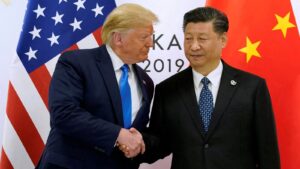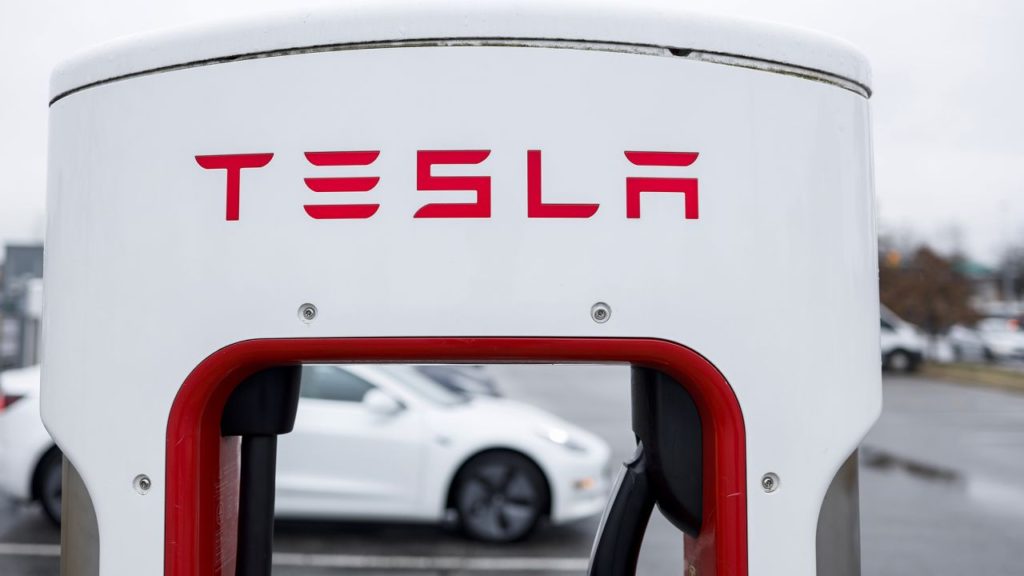|
Getting your Trinity Audio player ready...
|
In a bold move aimed at competing with Tesla and tapping into Biden administration subsidies, seven major automakers announced on Wednesday that they are forming a new joint-venture company to provide electric vehicle (EV) charging infrastructure in the United States.
The coalition comprises General Motors (GM), Stellantis, Hyundai Motor, Honda, BMW, and Mercedes Benz, representing around half of U.S. vehicle sales but only a small portion of the EV market, which has been dominated by Tesla. Recognizing the need for collaboration to establish a robust charging network, the group aims to deploy 30,000 chargers across North America, focusing on major highways and urban areas.
While the automakers did not disclose their individual or collective investment amounts, they emphasized their willingness to welcome additional funding or participation from companies both within and outside the automotive industry. The venture’s name remains undisclosed at this time.
According to Akshay Singh, a partner at consultancy PwC Strategy&, this collaboration will prove to be a more cost-effective approach compared to each company building its charging network. Moreover, the automakers will gain greater control over the customer experience and valuable data insights.
With over 30,000 fast-charging stations already scattered throughout the nation, the cost of setting up this new venture is expected to reach multiple billions of dollars, as estimated by industry insiders familiar with charger costs.
The Biden administration has voiced its support for the venture, viewing it as a significant step forward and a job creator. The administration has set a target of establishing 500,000 chargers nationwide by 2030, a nearly four-fold increase from the existing infrastructure.
Tesla, being the leader in charging network development with nearly 18,000 Superchargers in the U.S., has been granted an opportunity to access federal subsidies by opening a part of its charging network to rival EVs.
To keep up with Tesla’s charging technology standards, GM, Mercedes, and other automakers have agreed to adopt the Tesla-developed North American Charging Standard (NACS) starting in 2025. In contrast, the other coalition members (Stellantis, Hyundai, Honda, and BMW) rely on the Combined Charging System (CCS) for their EV products.
While the new joint venture will accommodate both charging standards, it will directly compete with Tesla’s extensive network.
The CEOs of the participating auto brands have expressed their vision of creating charging stations that resemble traditional gas stations, complete with restrooms, food services, and retail operations. This approach is intended to support a faster and more convenient EV rollout.
However, some challenges remain, as automakers lack the necessary expertise in working with retailers and electricians. According to Andres Pinter, co-CEO at installation and maintenance company Bullet EV Charging Solutions, outsourcing this aspect of the project might be a more practical solution given the automakers’ financial resources.

The newly formed venture will also face competition from established charging companies such as Volkswagen’s Electrify America and EVGo.
Addressing potential antitrust concerns, a spokesman for the coalition stated that the joint venture would be subject to regulatory approvals. Nonetheless, antitrust attorney Andre Barlow predicts that the Justice Department will likely review the deal despite the White House’s endorsement.
The primary concern with such collaborations is that they could lead to illegal coordination, such as price-fixing or market division. Given the size and influence of the automakers involved, scrutiny will be essential to ensure fair competition in the growing EV charging market.
In response to potential antitrust concerns, the automakers emphasized that their joint venture would adhere to all regulatory approvals and undergo thorough scrutiny to maintain compliance with fair competition standards.
This strategic move by the automakers reflects their recognition of the urgent need for a well-developed charging infrastructure to accelerate the adoption of electric vehicles in the United States. Tesla’s existing Supercharger network has given the company a significant advantage in setting standards, but competitors have expressed reservations about relying on a system controlled by a rival. By forming this coalition, the automakers aim to level the playing field and gain greater control over their EV charging destiny.
The new venture’s structure may mirror that of Ionity, a similar initiative founded in Europe in 2017. Ionity counts automakers such as Volkswagen, Daimler, BMW, Ford, and Hyundai as members, and it has been successful in expanding charging infrastructure across Europe.
While the joint venture faces challenges, including competition from existing charging companies and the need to establish charging stations comparable to gas stations in terms of amenities and services, the involvement of major automakers and the backing of the White House provide a considerable boost to its chances of success.
Experts in the EV industry have expressed cautious optimism about the coalition’s efforts. The new joint venture has the potential to drive innovation, expand charging accessibility, and accelerate the adoption of electric vehicles in the United States. The increased availability of chargers is expected to alleviate range anxiety among potential EV buyers and facilitate long-distance travel for electric vehicles.
However, some industry insiders remain skeptical about the automakers’ ability to catch up to Tesla’s well-established charging network rapidly. While these companies possess significant financial resources, the intricacies of building and maintaining a vast charging infrastructure may pose a considerable learning curve.
As the venture progresses, the impact on the EV market landscape will become clearer. Will it spur Tesla to further enhance its Supercharger network and maintain its leadership position? Or will the combined efforts of major automakers disrupt Tesla’s dominance and accelerate the growth of electric vehicles in the U.S.?
The collaboration’s success will depend on the automakers’ ability to navigate potential antitrust concerns, swiftly deploy charging stations at scale, and ensure a seamless customer experience. As the race to electrify America’s roads intensifies, the coming years will be critical in determining which charging network becomes the primary choice for EV owners across the nation.
With the Biden administration’s focus on promoting clean energy and the transition to electric vehicles, the formation of this joint venture aligns with the government’s goals. As more details emerge about the venture’s plans and progress, stakeholders, EV enthusiasts, and the public will closely monitor its impact on the future of EV charging infrastructure in the United States.



